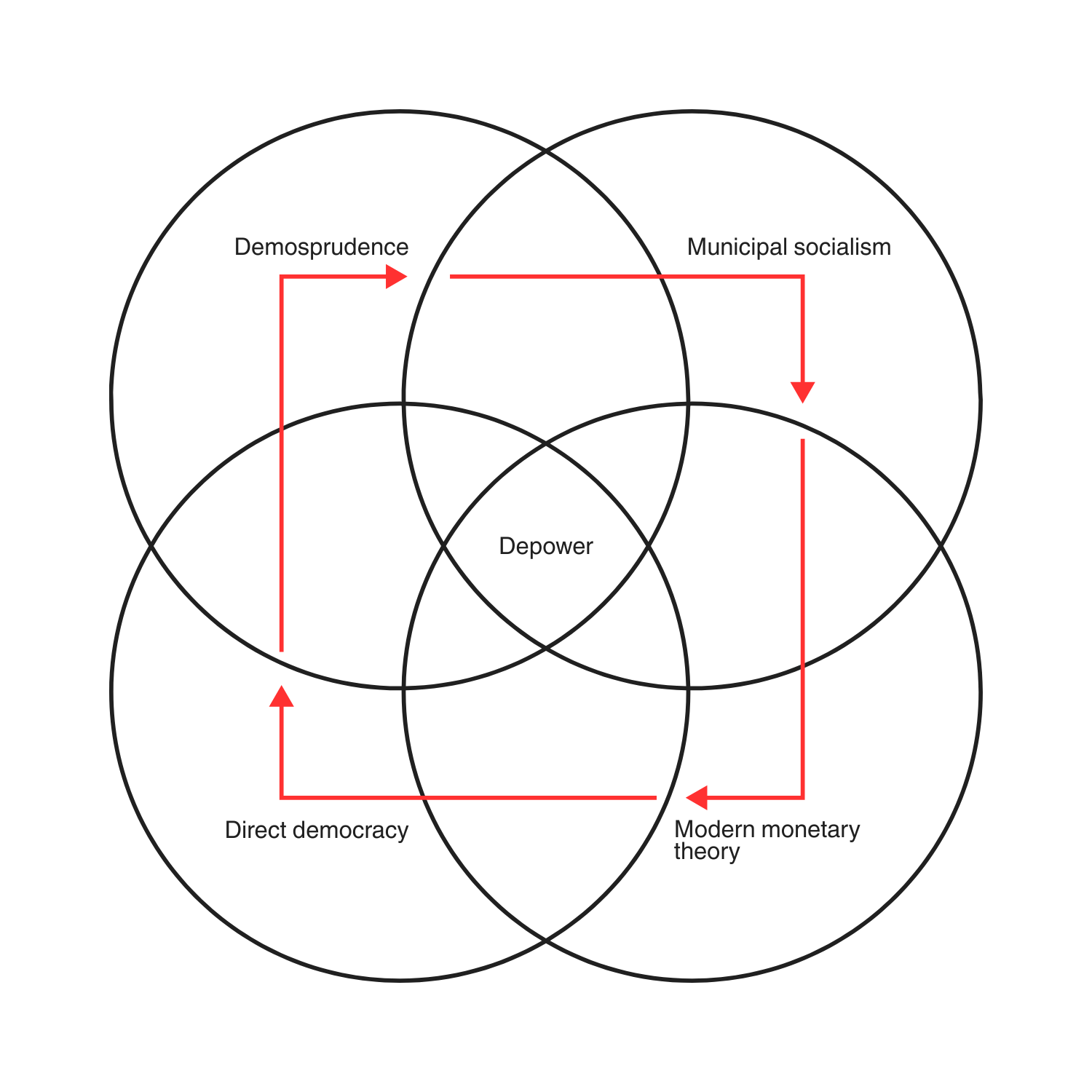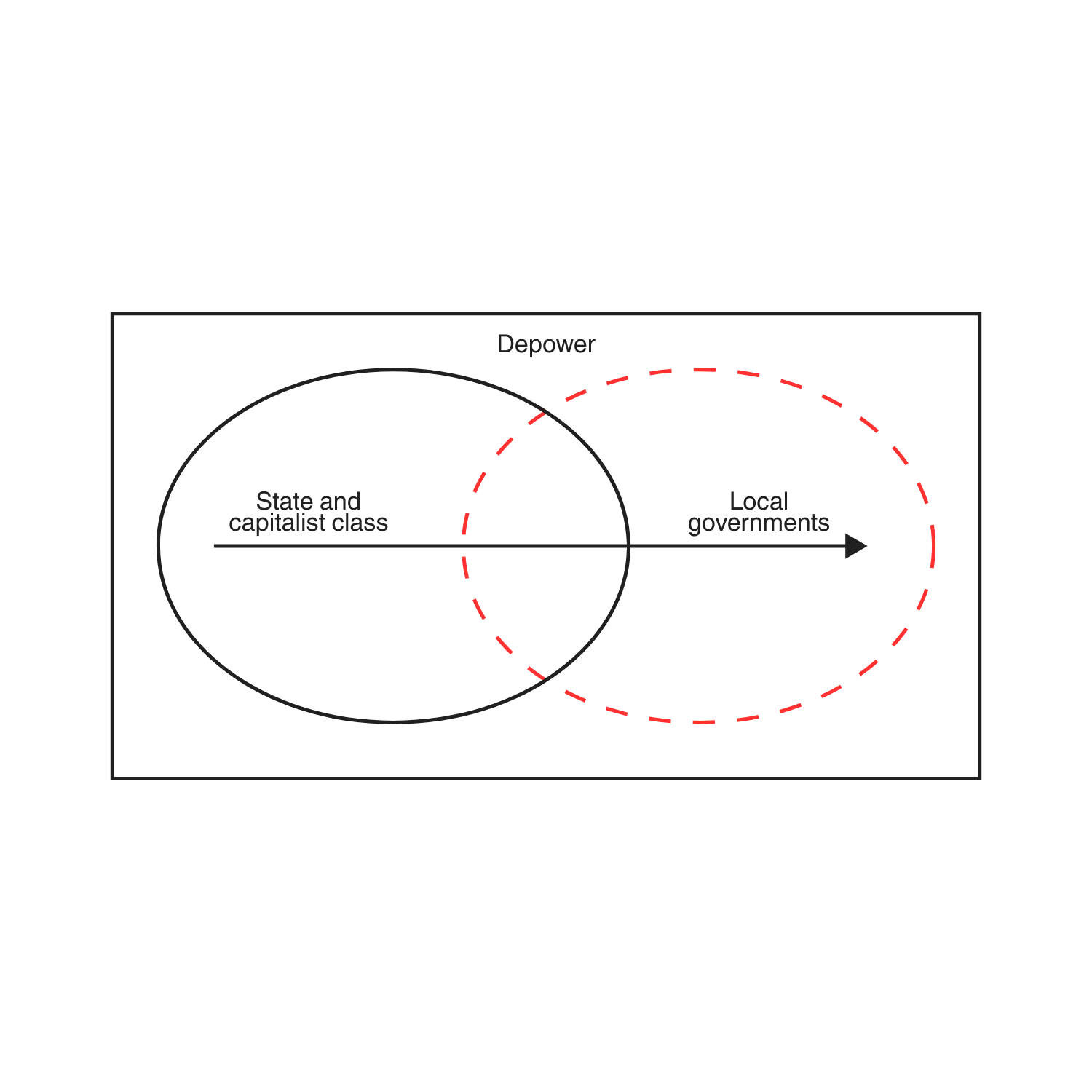
Daniel Gildelamadrid is the Editor of The Societarian. He studies and writes on race, sociology, politics, and law.
Municipal governments are powerhouses of societal progress unrealized at the federal level, from raising the minimum wage and taxing the rich to Green New Deals and mitigating climate change. Urban socialists from mayors of the New Deal era to NYC Democratic primary winner Zohran Mamdani all believe in the capacity of municipal socialism, or the achievement of socialist aims through local government.
Instead of waiting for the federal government to raise standards of living tied to wage rates and education access, we could be pushing for salient policies in our cities. Instead of waiting for capitalists at the head of the market to decide to prioritize planet over profit, we could be pushing clean energy transitions and funding climate mitigation in our own municipalities.
The agency in local politics is bolder than the credit we give, and it carries the indication that federal elections are not the only avenue of critical change; grassroots and bottom-up mobilization can prove more formative in the lives of everyday people than we presume.
We should ask ourselves what this indicates about power in society. We should imagine the power of future societies. We should consider the power of depower.
The term “depower” means moving power downward, and is a political ideology aimed at decentralizing economic and political power from its concentrations in the state and capitalist class, and toward local governments. Power should be transitioned from the top of society toward the bottom, where political and economic systems would be subject to local democratic control.
Critical of centralized authority and opposed to the hierarchy characteristic of capitalist democracies, depower seeks a deeply active and democratic municipal political economy, where an expanded public sector would be owned by and designed for the people. Depower would involve a radical municipal democratic and planned economic apparatus that would put critical agency into the hands of communities, fostering self-determination and responsive governance.
At the intersection of political change and law lies demosprudence, a critical component of depower. Developed by critical race theorist Lani Guinier, demosprudence refers to the ways in which normal people influence law. Protestors, organizers, educators, and even dissenting opinion writers all exert influence over policymaking and judicial decisions. Depower emphasizes the role of community grassroots movements in shaping politics, and with forms of municipal democracy achieved, demosprudence can be a core feature of how political and economic decisions are reached.
Democracy is alive when popular dissent and support, especially from marginalized groups, are reflected in the processes of lawmaking, economic planning, and judicial review. Municipal governments adopting participatory budgeting, expanded city council seats, public deliberation, and other means of enhancing civic engagement align with the aim of depower as a democratic and collective project.
Cities and towns would benefit from expanded municipal engagement, permitting the public to directly participate in the political process. Direct democracy measures such as referendums would give average people a more consequential voice on the issues that impact them and their communities. Committing to transparency in the municipal process, as well as leveraging modern technology to enhance civic engagement, would make local democracy more direct and healthy. Citizen assemblies, where randomly selected residents deliberate on specific issues regarding government action, as well as public outreach and surveying, could be implemented to expand local democratic systems.
Depower advocates for forms of public goods, such as universal social housing, government-run clean energy production, public power grids, city-owned grocery stores, and public transportation. The contemporary private property regime exploits human needs for shelter, food, and mobility. These goods should be public goods, owned and managed by municipal democracies for the welfare of the people.
Public local banks, which would be decentralized, would fund local fiscal policy – and would operate within the economic framework of modern monetary theory, which contends that expenditures in certain countries, such as the United States, are not restrained by revenue like a household is.

As climate change poses threats to cities globally, and civil rights issues persist, policy on the municipal level can operate as a pragmatic alternative to waiting for federal change. Municipal Green New Deals are notable examples of depower in action. Policies that could be taken by local governments to answer the pressing problems of today include:
- 100% renewable energy transition
- Climate resilient infrastructure
- Free and robust public transportation
- Universal housing, healthcare, education, food, and other human rights
- Intersectional Civil Rights Act and equal rights protections
- Public banking establishment
- City-owned grocery stores
- Community gardens and food forests
- Disclosure requirements and open data
- Public voices in local economic and urban planning
- Elected boards to manage public properties and services
- Local reparations and land back programs

Depower has the potential to reshape modern approaches to municipal politics, as well as to how the economic system should be organized and maintained. When political and economic power is concentrated in the hands of a few, that political-economic system is neither democratic nor is it viable long-term.
The struggles against climate change, capitalism, racial injustice, and other societal ills all have common ground, and depower is one of many ideologies centered on collective liberation.
Through giving the average person the agency to engage directly with their government and the planning of their economies, depower would radically change the world and the lives of the world’s people.
In the power of depower is not merely the institutional systems for which it advocates; in depower is the power of the people; in depower is the promise of a better, more democratic world.

